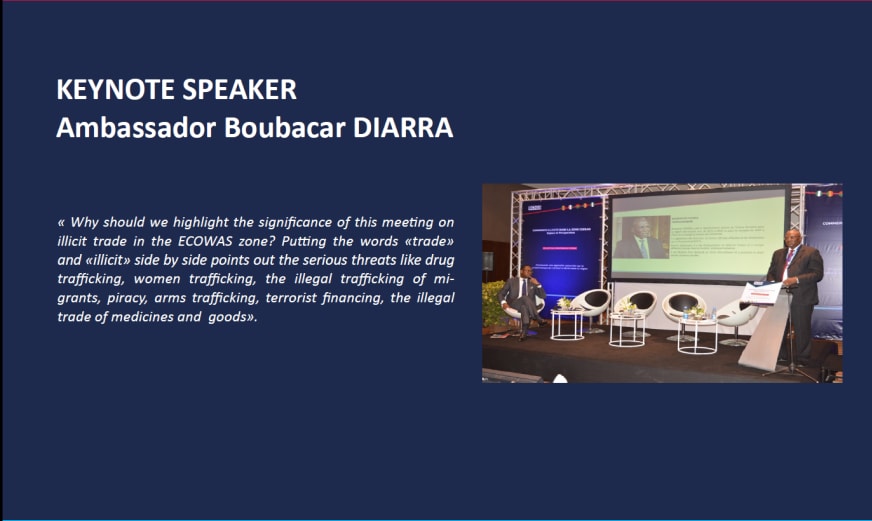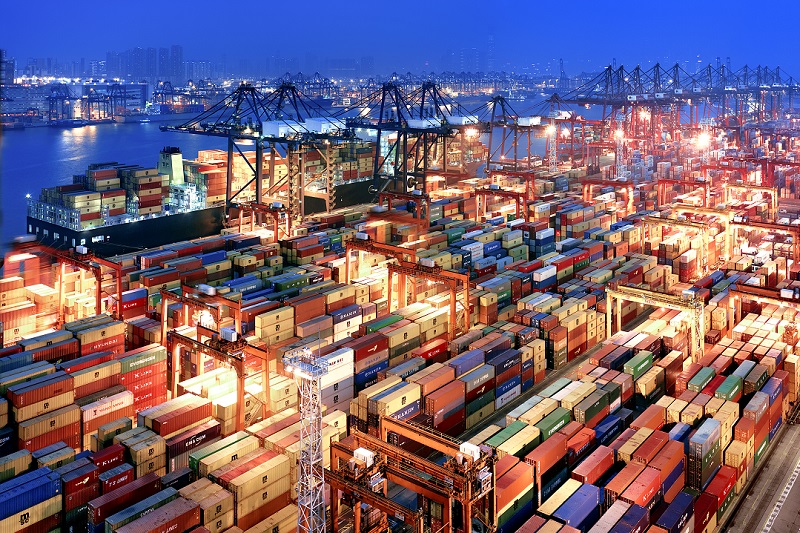
Russia’s anti-illicit legislation shows signs of success—Q&A with Alexander Mironenko
7 may 2020

All countries are affected by the illicit trade of cigarettes. But for Russia, a country with over 7,000 kilometers of land borders, the issue has been particularly damaging, costing billions of dollars in lost tax revenue every year. In 2016, the Russian government brought in sweeping legislative changes in an attempt to address the problem and enable law enforcement and customs agents to stamp out the illicit tobacco market.
Despite facing challenging times under the coronavirus outbreak, the Federal Customs Service last month announced a major breakthrough in these recent efforts. Customs and law enforcement agents led a raid in Krasnodar and Rostov-on-Don that disrupted the largest criminal group in southern Russia. The operation closed illicit factories that were manufacturing an estimated RUB 500 million (around USD 6.5 million) of low-quality and dangerous counterfeit knockoffs of Marlboro, LM, Winston, Fast, Dontabak, and Kosmos brands every month.
The raids were carried out in close cooperation between national customs authorities, Rostov-on-Don Federal Security Service, South Transport Prosecutor’s Office, and territory branches of Transport Police. According to reports, this unprecedented level of action and collaboration highlighted significant progress in the Russian government’s fight against the illicit tobacco market.
To understand more about how the illicit trade of cigarettes affects Russia and what more needs to be done to curb its growth, STOP ILLEGAL spoke to Alexander Mironenko, Director, Eurasian Economic Union & Illicit Trade Prevention at Philip Morris Sales & Marketing, who works closely with the Russian authorities in the fight against all forms of illicit trade.
STOP ILLEGAL: How is Russia impacted by illicit trade?
Alexander Mironenko: Illicit trade is a significant problem in Russia. We are a very large country with very long borders. This means that we have always had a tough time dealing with illicit trade. Not just cigarettes, but all products.
STOP ILLEGAL: What is being done to tackle the problem?
Alexander Mironenko: In January 2015, Russian President Vladimir Putin signed a decree on additional measures to counter illicit turnover of industrial goods stating that one of the biggest issues facing the economy was the growth of illegal products and highlighting just how seriously the government is taking its fight against illicit trade. A wide range of legislative initiatives have since been put in place to ensure that customs and law enforcement agencies are better able to stamp out the problem.
Illicit cigarettes, however, remain a significant challenge. According to the latest available research for Q3 2019, the share of illegal products in the Russian tobacco market reached 15.6 percent—the highest ever. In 2020, we are estimating that illicit cigarette sales will cost the government RUB 100 billion (around USD 1.35 billion) in lost tax revenues.
STOP ILLEGAL: What legislation has been introduced?
Alexander Mironenko: We have been consistent over the last three years in communicating to government agencies that in order to curb the growth of illicit cigarettes, trade controls must be wide-ranging. As of last July, mandatory digital labeling was introduced in Russia, and as of July 1 of this year, full track-and-trace policies are scheduled to be introduced. These measures are a very solid step toward solving the issue of illegal trade.
We are talking more about the introduction of a minimum single retail price for the sale of cigarettes. We also hope that the member states of the Eurasian Economic Union will soon ratify an agreement on the harmonization of excise policies, which was signed last year. And of course, we're working very hard and in close coordination with the state agencies to introduce a state register to monitor the alterations and transactions on the equipment used in the manufacturing of cigarettes.
STOP ILLEGAL: What was significant about the recent raids in Krasnodar and Rostov-on-Don?
Alexander Mironenko: The raids in Krasnodar and Rostov-on-Don were a very positive step forward in the Russian government’s fight against illicit tobacco. Firstly, it disrupted one of the largest criminal groups in Southern Russia and took down a very large manufacturing facility. According to government estimations, the production capability was half a billion rubles a month. The minimum excise rate and VAT per cigarette pack today is around 64 rubles, so it is very easy to make a calculation of the losses that can be made when we factor in the factory sites of this size.
Secondly, the raids depended on effective cooperation between multiple law enforcement and customs agencies. Between 2015 and 2016, we saw the illegal cigarette market double, and we have seen year-on-year growth since then. Cooperation like this will be fundamental in reversing this trend over the coming years.
STOP ILLEGAL: What has caused the rise in illicit cigarette sales in recent years?
Alexander Mironenko: In 2015, the Eurasian Economic Union (Armenia, Belarus, Kazakhstan, Kyrgyzstan, and Russia) allowed the free movement of goods without the need for border checks or customs controls. There is a significant difference in the VAT and excise rates between these countries. For example, it’s about EUR 35 per 1,000 packets of cigarettes in Russia; in Belarus, it is roughly nine. Because goods are allowed to move freely between EEU countries, it makes it very difficult to find contraband goods or illicit white cigarettes.
To give an idea of the scale of the issue, the capacity of Belarusian cigarette manufacturers is in the range of 29 billion and growing. Domestic consumption is in the range of 16 billion. This means that over half of the total capacity is being distributed and sold somewhere else. We know that a big portion is sold in Russia, meaning the Russian government does not get any excise tax or VAT on billions of cigarettes every year. This illicit market also deeply impacts legitimate jobs in Russia and numerous local economies.
STOP ILLEGAL: Are there any other factors adding to the problem?
Alexander Mironenko: The second key factor driving up the illicit cigarette market is the decline in disposable income for millions of families over the last five years. When you have a choice between paying 50 rubles for a pack of cigarettes made in Belarus or 100 rubles for a pack made in Russia, you can just guess which one people go for. So, the economic conditions have added to the growth in the illegal market.
This is especially important when considering the coming few years in Russia following the coronavirus outbreak. My worry is about the impact on the Russian economy in general, particularly on small and mid-sized businesses. I am afraid that a large number of general trade retailers will not survive. This will make illicit markets more difficult to regulate, and people will have less money. If they have less money and the option to buy cheaper illicit goods, they will choose the latter.
Continuing this push for effective cooperation between public, non-governmental private sectors will be crucially important in making sure progress is not lost in Russia’s fight against illicit tobacco.
For more information about the issue, read the
KPMG Eurasian Economic Union Illicit Cigarette Report.
Related articles
Share this link
Illicit trade prevention


